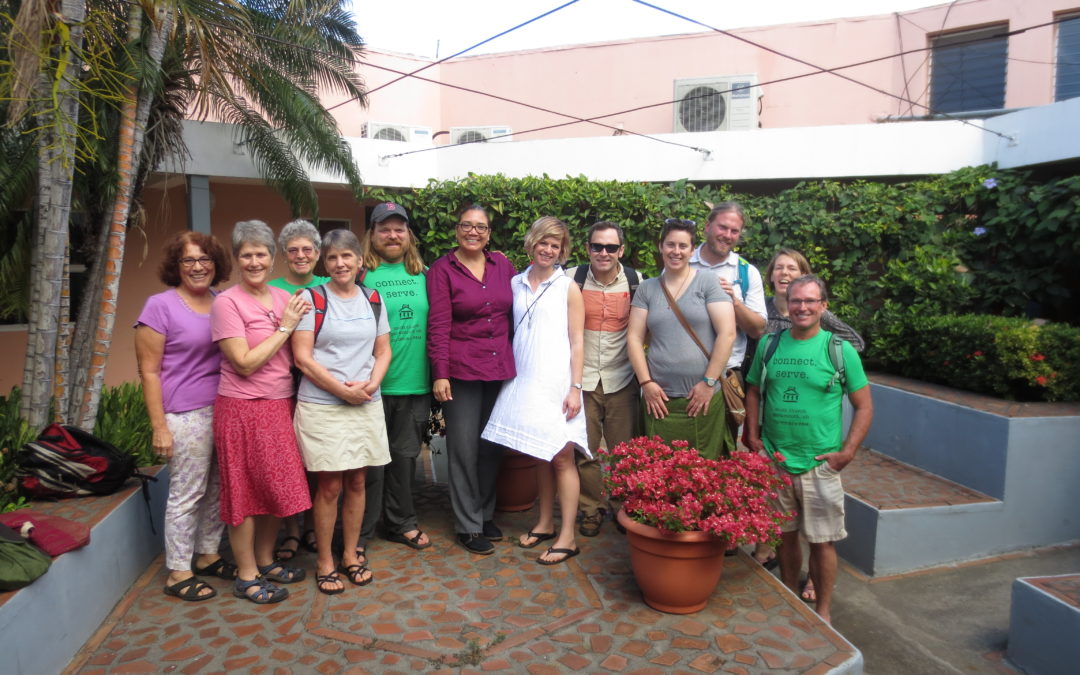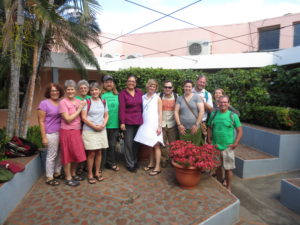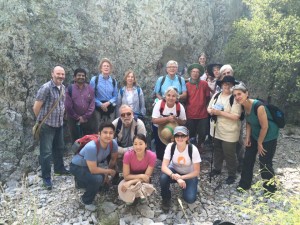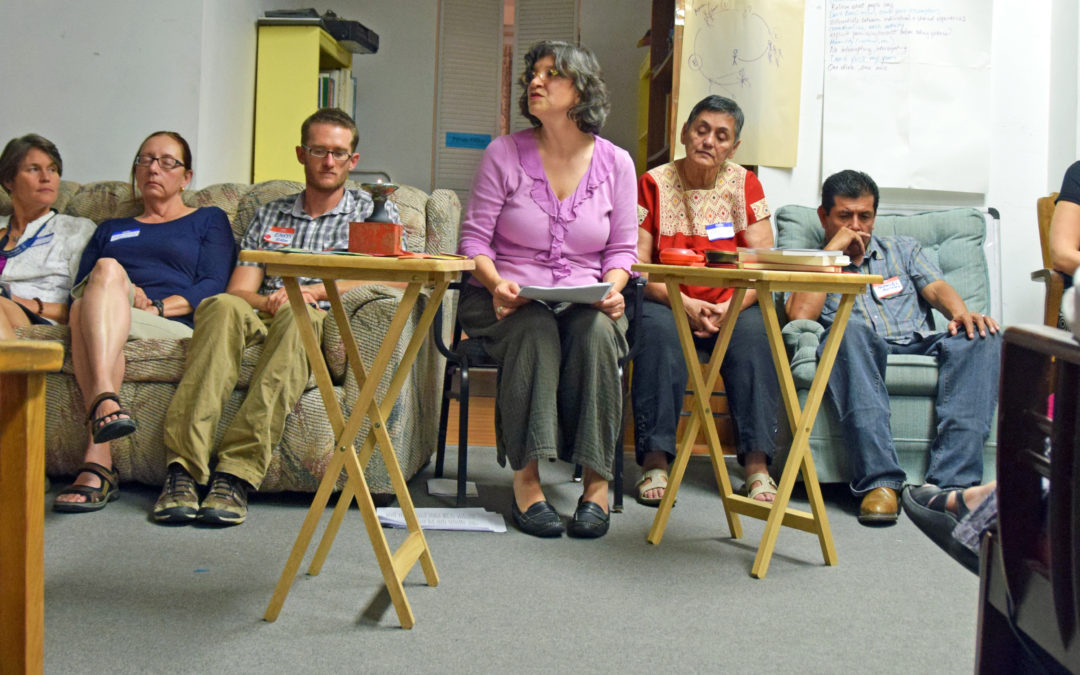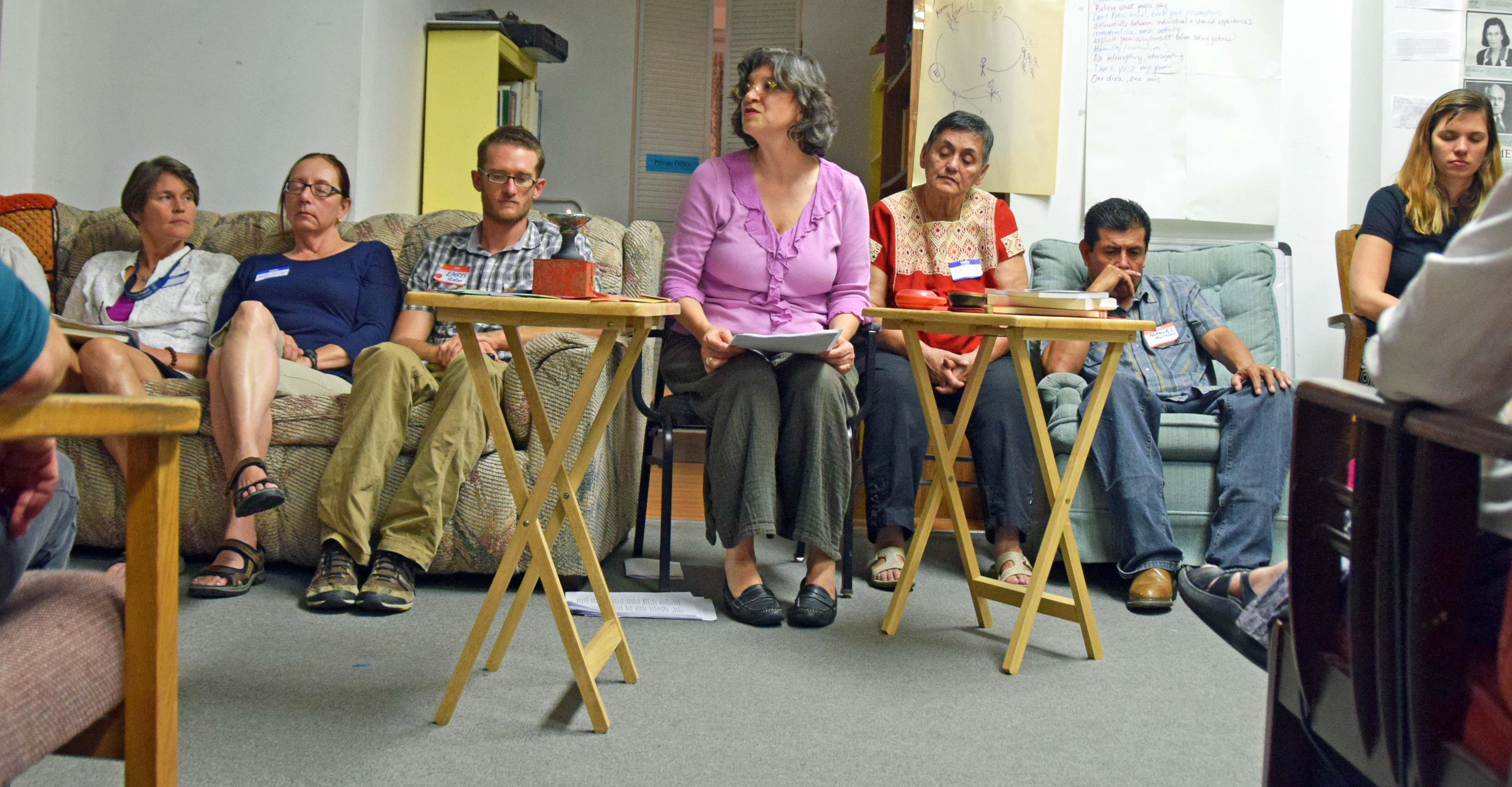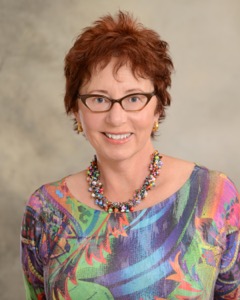
We Keep Coming Back
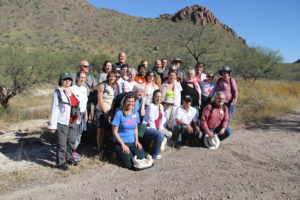
2014 Religious Professionals Border Witness Participants
In November of 2014, the College of Social Justice offered a border trip for religious leaders of our denomination. I wanted to travel with colleagues who came to learn for their own sake, but who also came to find inspiration for a new level of justice engagement with their congregations.
Each morning started with worship, preparing us for the day’s experience ahead. The week was intellectually stimulating, but it was my heart more than my mind that was broken open. We witnessed tremendous injustice, and what gave me hope, was witnessing the determination of both dedicated individuals and agencies who, because of their faith, had energy that did not cease.
Before returning home from the border trip, the staff of UUCSJ challenged us to choose something concerning immigration that we believed we could address within our sphere of influence. That’s how a new relationship focused on justice between the undocumented students of The University of California at Davis and The Unitarian Universalist Church of Davis began. In November 2014, the same month as the UU College of Social Justice trip for religious leaders, the AB 540 Undocumented Student Center was established by UC Davis. That first year, the Center served the needs of a couple hundred undocumented students. Since that first year, the number of known undocumented students is closer to 500, and there are more students every year.
Our relationship started with the allies who chose to represent the undocumented students. They spoke in worship services, and congregation members took special collections or made donations of gift cards to grocery stores. It seemed like such a small effort, and yet it was the sphere of influence available to us at the time.
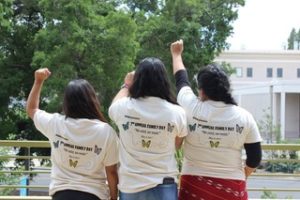
SPEAK Members
However, at the beginning of the 2016-2017 academic year, the Center put us in direct relationship with members from SPEAK, a support group for students who are undocumented and their allies. Together, we discovered that the members of UUCD, as Unitarian Universalists, are uniquely positioned to be of assistance, as the students hoped to be in relationship with organizations that are LGBTQI friendly as well.
Trust has come slowly. We had much to learn, and so did the students. We were not necessarily skilled allies, and they were not familiar with churches that would support diversity as an ideal. With every passing season, there are more and more volunteer opportunities for congregants to support the students. We supply snacks at the Center where they study, offer our space on our church campus for their end of the year banquets and graduation parties for families. we’re running a Faithify fund raiser for their emergency funds, which supports their presence at the university or pays their DACA fees.
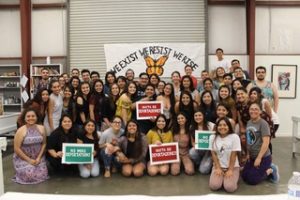
SPEAK – We Exist We Resist
In return we promise to take the UndocuALLY training, to help those of us who have never lived in fear of deportation understand the secrecy needed to survive. With this training, we learn how to listen more carefully – slowly both groups are creating a bridge of trust.
This coming November the congregation is planning a border trip with UUCSJ because more people want to experience their own emersion learning. We will not learn alone. Prior to the trip, everyone in the congregation will be invited to attend the four sessions prepared by UUCSJ on immigration justice.
The sphere of influence, the one small thing that I could do when I returned from the UUCSJ border emersion trip, was making contact with the Executive Director of the Undocumented Center. I returned to her office repeatedly, asking the same question, “How can we help?” Eventually, we found just the place where we were needed most. When I ask the students why they are beginning to trust, they give an answer that is so seemingly mundane. ‘“It’s because you didn’t go away, and kept coming back.” We’re going to keep coming back.
To learn more about our journeys for Religious professionals or to sign up for the upcoming fall 2017 journeys to the Border (Border Witness for Religious Leaders: Oct. 30 – Nov. 4, 2017) or Nicaragua (Guardians of the River: Climate Justice for Theologians: Nov. 25-Dec. 2), visit https://uucsj.org/journeys/religious-leaders/

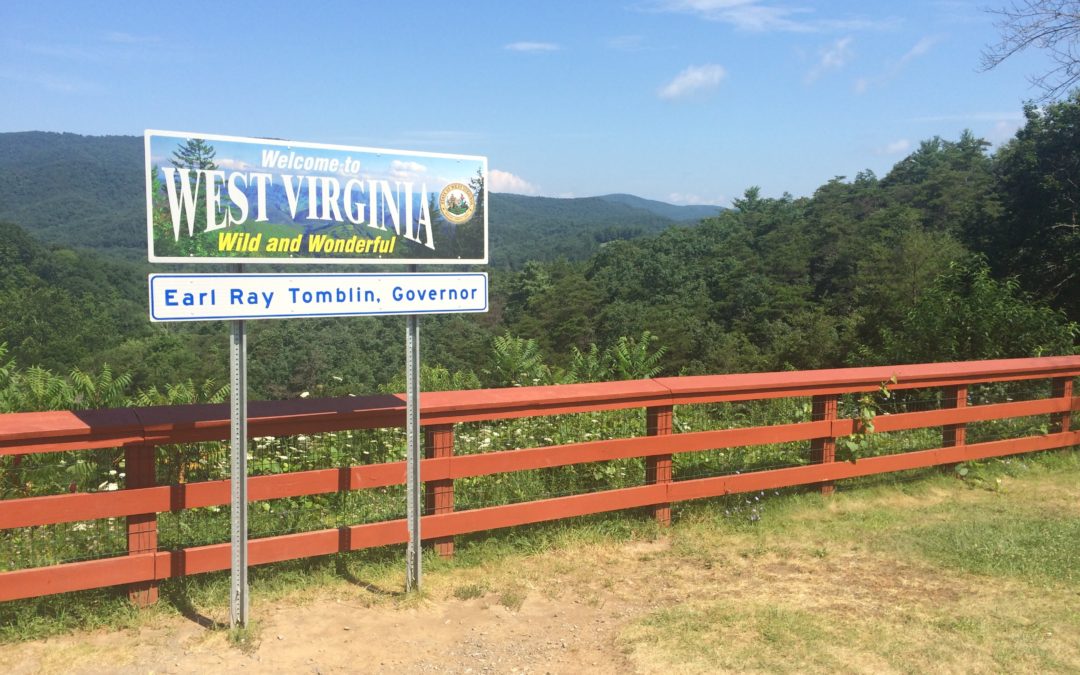
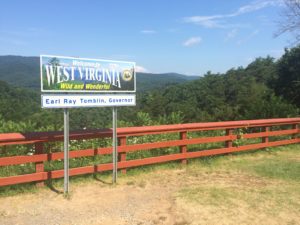 I have to admit, upon planning for this trip, I found myself feeling a range of emotions: intrigued, nervous, romanticizing. Like few other places in the country, West Virginia has come to stand for something very deeply entrenched in our national psyche. It has been heralded as the “home of coal,” and post-election we heard endless analyses of the state of the “white working class” and how on earth they could turn out in such large numbers for someone like Donald Trump. On the other hand, folks in West Virginia often refer to themselves as a “third world country” and as a “national sacrifice zone.”
I have to admit, upon planning for this trip, I found myself feeling a range of emotions: intrigued, nervous, romanticizing. Like few other places in the country, West Virginia has come to stand for something very deeply entrenched in our national psyche. It has been heralded as the “home of coal,” and post-election we heard endless analyses of the state of the “white working class” and how on earth they could turn out in such large numbers for someone like Donald Trump. On the other hand, folks in West Virginia often refer to themselves as a “third world country” and as a “national sacrifice zone.”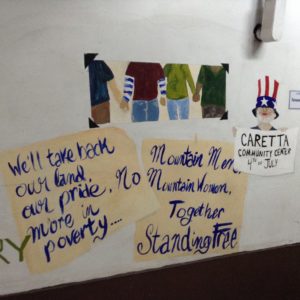 But there is another side I witnessed: West Virginia wasn’t always “white”, and wasn’t always poor, it has a long history of multi-racial activism led by the most affected (especially in coal mining unions), a long history of people fighting for dignity, diversity and sustainable development. And now, in the face of vicious inequality and environmental disaster, ordinary people are coming together to fight for their mountains, their water, their state and for their future.
But there is another side I witnessed: West Virginia wasn’t always “white”, and wasn’t always poor, it has a long history of multi-racial activism led by the most affected (especially in coal mining unions), a long history of people fighting for dignity, diversity and sustainable development. And now, in the face of vicious inequality and environmental disaster, ordinary people are coming together to fight for their mountains, their water, their state and for their future.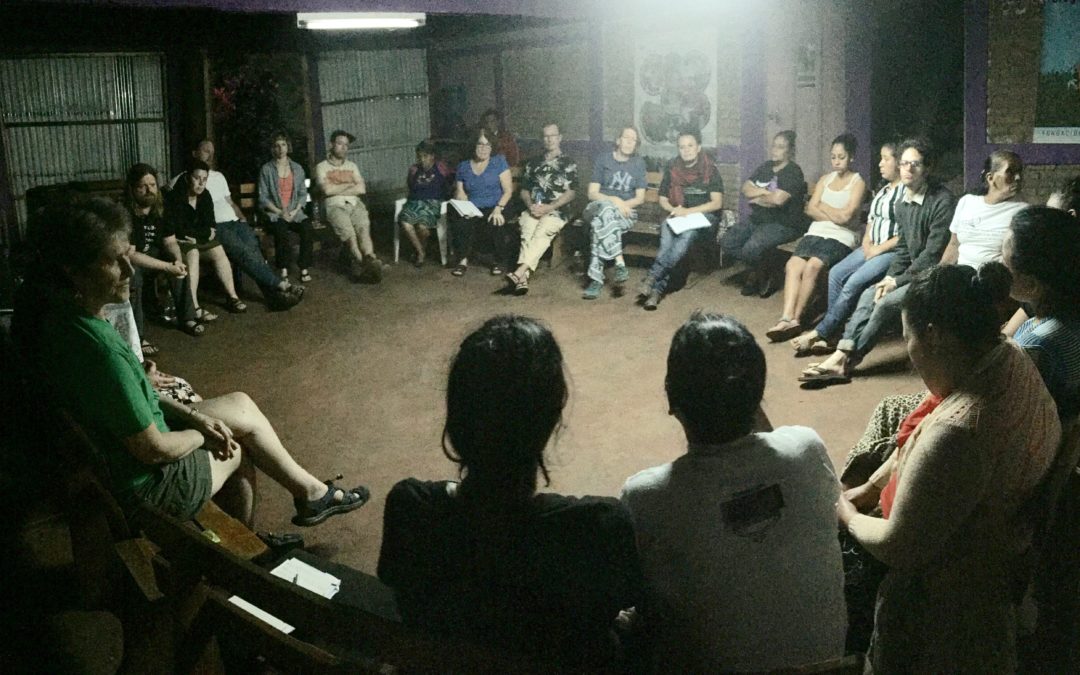
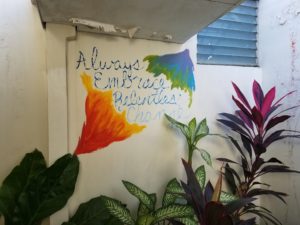 As Trump was preparing to take office
As Trump was preparing to take office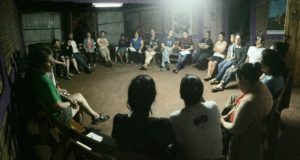
 And for 22 years. They have been breaking it down.
And for 22 years. They have been breaking it down.